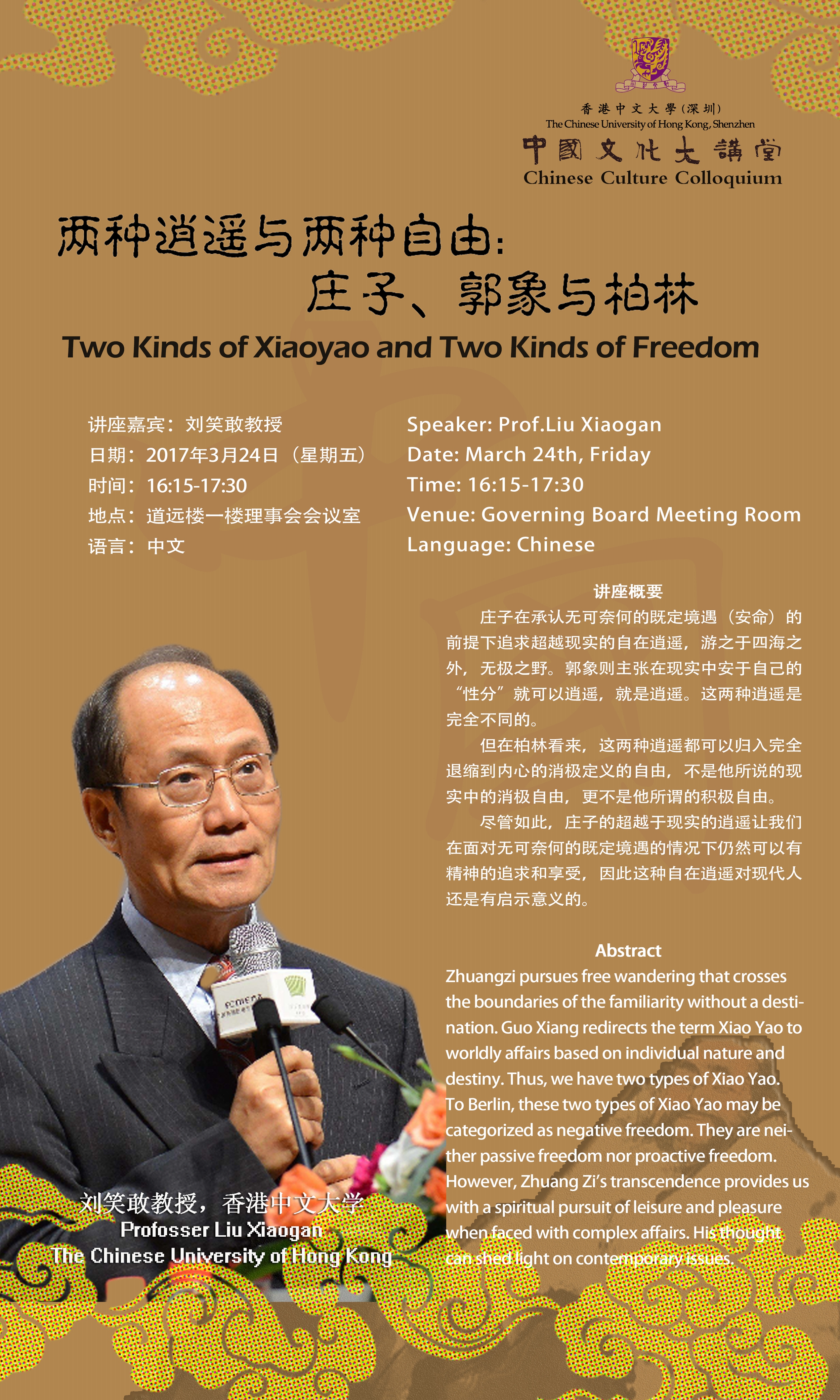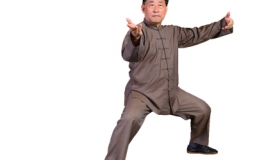【Chinese Culture Colloquium】Two Kinds of Xiaoyao and Two Kinds of Freedom

Topic: Two Kinds of Xiaoyao and Two Kinds of Freedom
Speaker: Professor Liu Xiaogan
Date: Friday, 24 March 2017
Time: 16:15-17:30
Venue: Governing Board Meeting Room, Dao Yuan Building
Language: Chinese
Speaker Profile:
Prof.Liu Xiaogan is currently the honorary director of the Research Centre for Chinese Philosophy and Culture, the Chinese University of Hong Kong (CUHK). After gaining this PhD degree from Peking University, he taught and conducted research at Peking University, University of Michigan, Harvard, Princeton, PSR, CST and the National University of Singapore. He is the founding editor-in-chief of The Journal of Chinese Philosophy and Culture. He is the author, editor, and contributor of numerous books and journals in Chinese and English, including Laozi Gujin, Classifying the Zhuangzi Chapters, Companion to Daoist Philosophy, and Orientational Issues in Textual Interpretation. He has received numerous awards and prizes for teaching and research excellence in Beijing, Singapore, and Hong Kong.
Abstract:
Zhuang Zi pursues free wandering that crosses the boundaries of the familiarity without a destination. Guo Xiang redirects the term Xiao Yao to worldly affairs based on individual nature and destiny. Thus, we have two types of Xiao Yao. To Berlin, these two types of Xiao Yao may be categorized as negative freedom. They are neither passive freedom nor proactive freedom. However, Zhuang Zi’s transcendence provides us with a spiritual pursuit of leisure and pleasure when faced with complex world affairs. His thought can shed light on contemporary issues.




